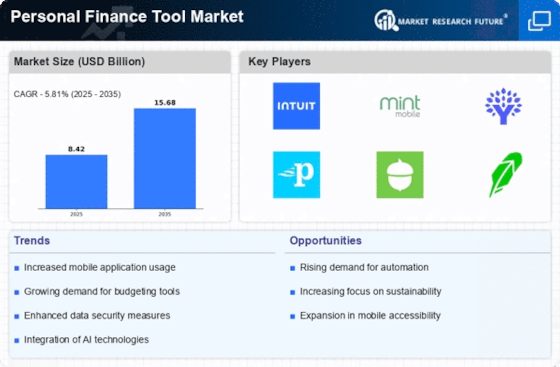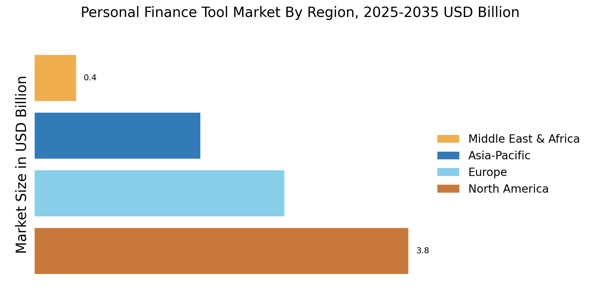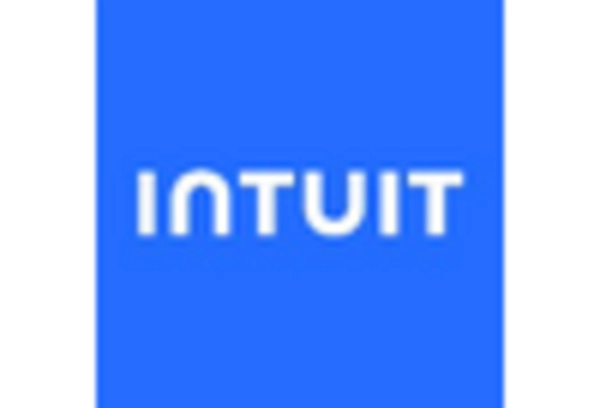Increased Focus on Data Security
The Personal Finance Tool Market faces heightened scrutiny regarding data security and privacy. As users become more aware of the risks associated with sharing personal financial information, the demand for secure financial tools is on the rise. Recent reports suggest that approximately 80% of consumers prioritize data security when selecting a personal finance tool. Companies are thus compelled to invest in robust security measures and transparent data handling practices to build trust with their users. This focus on security not only enhances user confidence but also strengthens the overall reputation of the Personal Finance Tool Market.
Integration of Advanced Analytics
The Personal Finance Tool Market is witnessing a significant shift towards the integration of advanced analytics. Financial tools that leverage data analytics provide users with personalized insights and recommendations, enhancing their financial decision-making processes. According to recent statistics, around 45% of users prefer tools that offer predictive analytics to forecast future expenses and savings. This integration not only improves user experience but also positions companies as leaders in the Personal Finance Tool Market. As competition intensifies, firms are likely to invest in analytics capabilities to differentiate their offerings and attract a broader user base.
Rising Demand for Budgeting Tools
The Personal Finance Tool Market experiences a notable surge in demand for budgeting tools. As individuals increasingly seek to manage their finances effectively, the need for intuitive budgeting applications becomes paramount. Recent data indicates that approximately 60% of consumers express a desire for tools that facilitate better tracking of expenses and income. This trend is likely driven by a growing awareness of financial literacy and the importance of budgeting in achieving financial goals. Consequently, companies within the Personal Finance Tool Market are focusing on developing user-friendly interfaces and features that cater to this demand, potentially leading to increased user engagement and retention.
Expansion of Financial Services Ecosystem
The Personal Finance Tool Market is experiencing an expansion of the financial services ecosystem, driven by partnerships and collaborations among fintech companies, banks, and other financial institutions. This trend facilitates the integration of various financial services into a single platform, enhancing user convenience. Recent data indicates that over 50% of users prefer tools that offer a comprehensive suite of financial services, including budgeting, investing, and savings. As a result, companies within the Personal Finance Tool Market are likely to pursue strategic alliances to create holistic solutions that cater to the evolving needs of consumers.
Growing Interest in Sustainable Investing
The Personal Finance Tool Market is increasingly influenced by the growing interest in sustainable investing. Consumers are becoming more conscious of their investment choices, seeking tools that align with their values and promote environmental, social, and governance (ESG) criteria. Recent surveys indicate that nearly 70% of millennials prioritize sustainability in their investment decisions. This shift presents an opportunity for companies within the Personal Finance Tool Market to develop features that allow users to track and manage sustainable investments, potentially attracting a new demographic of socially responsible investors.

















